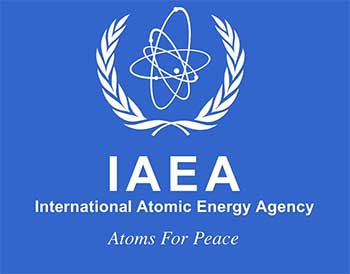Why in news?
Iran agreed to allow international inspectors to install new memory cards into surveillance cameras at its sensitive nuclear sites and to continue filming there.
Background
US Sanctions on Iran
- The United States initially imposed sanctions against Iran in 1979 following the Iranian Revolution and the seizure of the American Embassy in Tehran in which US diplomats were held hostage.
- While those original sanctions were lifted in 1981, new sanctions were imposed throughout the 1980s by the Carter and Reagan administrations in response to Iran’s actions in the Persian Gulf and its support for militant groups associated with terrorist activities.
- In 1995 President Clinton expanded the US’ Iran sanctions program, banning all US trade with the country. The tough new measures came in response to Iran’s nuclear program and to the Iranian government’s support for Hezbollah, Hamas, and Palestine Islamic Jihad – groups designated by the US as terrorist organizations.
- The United Nations imposed sanctions against Iran in 2006 after the International Atomic Energy Agency (IAEA) found that Iran’s government had failed to comply with nuclear weapon non-proliferation agreements.
Easing of Sanctions on Iran
- On April 2nd, 2015, the P5+1 (the five permanent UN Security Council nations plus Germany) reached a provisional agreement with Iran regarding its nuclear weapons program. Known as the Joint Comprehensive Plan of Action (JCPOA), the agreement essentially created a framework for lifting the majority of sanctions against Iran in return for various limits on Iran’s nuclear programs that would last for at least 10 years.
- However, as per IAEA reports, Iran continue to increase its stockpile of enriched uranium in violation of limitations set in the deal.
- After criticizing the 2015 deal as ‘one-sided’, the Trump administration withdrew the US from the JCPOA in May 2018. Later that year, the US government re-introduced sanctions against Iran in order to encourage the Iranian government to alter its Middle East policy and to halt its development of ballistic missiles.
- In early 2021, President Biden raised the possibility of lifting US sanctions if Iran achieved compliance with the terms of the JCPOA. The Iranian government previously stated that it would only return to the JCPOA if the US first lifted all sanctions. In June 2021, the US dropped some sanctions against Iran, in what the Biden administration described as a “good faith approach” to the ongoing negotiations.
Key facts about IAEA
- The International Atomic Energy Agency is the world's central intergovernmental forum for scientific and technical co-operation in the nuclear field.
- It works for the safe, secure and peaceful uses of nuclear science and technology, contributing to international peace and security and the United Nations' Sustainable Development Goals.
- It was set up as the world's "Atoms for Peace" organization in 1957 within the United Nations family.
- The IAEA Secretariat is headquartered at the Vienna International Centre in Vienna, Austria.
- The IAEA was established for the purpose of promoting increased use of nuclear power for civil purposes without entailing the further spread of nuclear arms.
- When the Nuclear Non-Proliferation Treaty (NPT) entered into force in 1970, the IAEA became the most important instrument for controlling that the treaty was complied with.
- International Atomic Energy Agency (IAEA) awarded the Nobel Peace Prize 2005 for their efforts to prevent nuclear energy from being used for military purposes and to ensure that nuclear energy for peaceful purposes is used in the safest possible way.
Source-
- the Hindu,
- iaea.org









